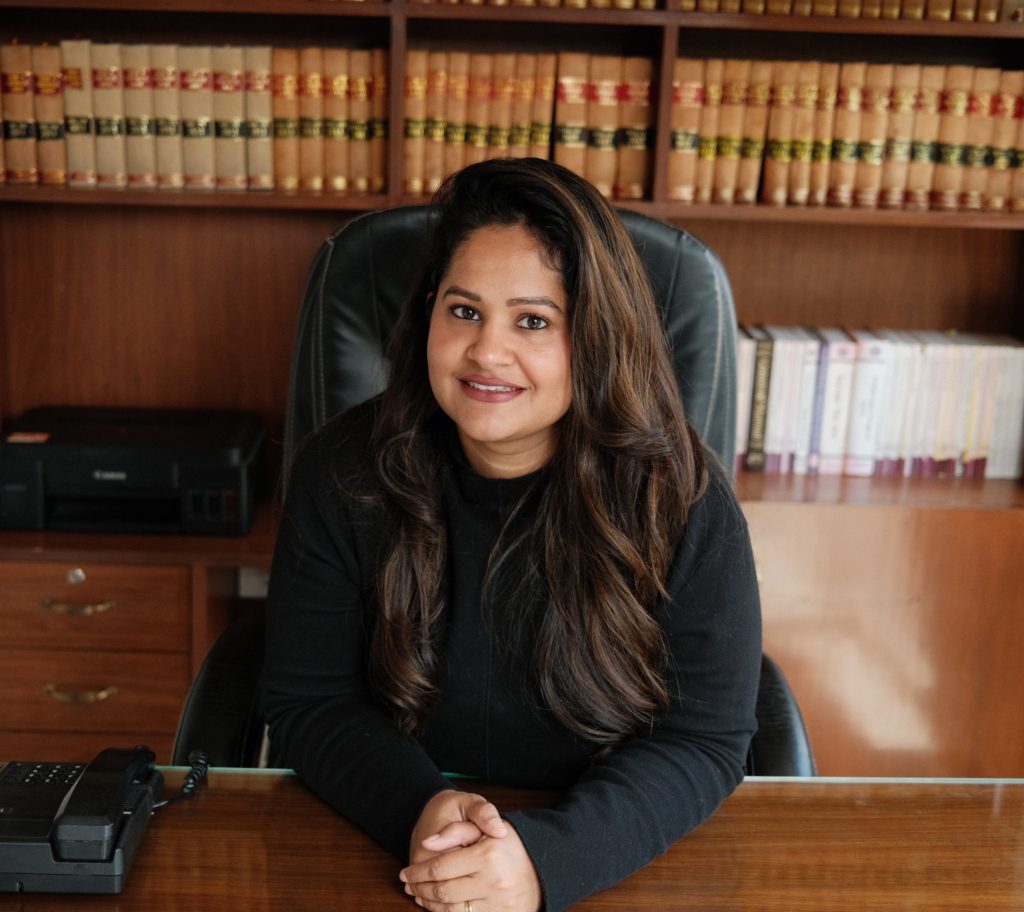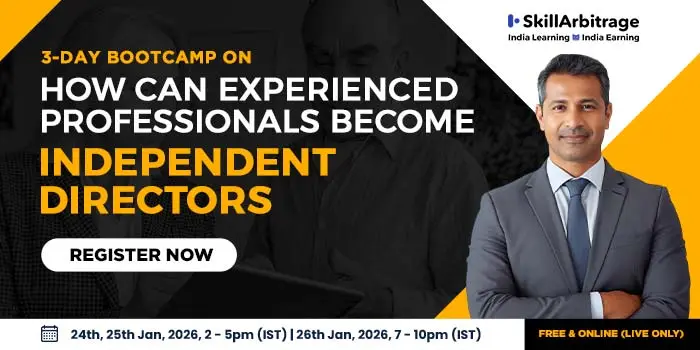This interview has been published by Anshi Mudgal and The SuperLawyer Team
Having built an impressive legal career spanning over seven years, and continuing your practice today while also excelling as a hospitality entrepreneur, what first inspired you to pursue a career in law?
I was the kid who always sought logic for everything and anything and asked a zillion questions. Growing up, the world of contracts, negotiation and consequences attracted me and I was drawn to the idea of transactions and their intricacies and would pester my father who is a businessman to know more about how things worked.
I grew up in a relatively conservative city of Kanpur in Uttar Pradesh, where females did not have it easy and small things had to be bargained and negotiated. All of this led me to admire people who could negotiate, resolve disputes with clear communication and well-reasoned logic. This also drew me to law as a field where I could advocate for others and use my communication skills to bring about meaningful change.
When I pursued higher education at Shri Ram College of Commerce and later at Campus Law Centre from where I pursued my LLB, I got fascinated with litigation. The fast paced dynamism and the strategy of litigation drew me in and I got hooked. I was very fortunate to have a fabulous mentor in my senior, Mr. Gaurav Pachnanda, Senior Advocate and Barrister at Fountain Court Chambers. Working with him introduced me to complex commercial arbitrations and was one of the best foundations that someone can ask for. My academic journey, which eventually took me to Cambridge University for my Master of Law, only deepened that conviction.
You began your professional journey practicing before some of the highest courts and tribunals in India before transitioning into hospitality entrepreneurship. What motivated this shift, and how did your legal acumen prepare you for the challenges of running and expanding a business?
After practising litigation full-time for several years, during the pandemic I got an opportunity and I made an unconventional road into the world of hospitality. At the time when the world was dealing with covid and everything underwent lockdown, one of our hotel’s in Dehradun was undergoing renovation. Being the foodie that we both are, we, (Abhishek, my husband and co-founder of the restaurants) decided to start a small pizzeria called Coco Osteria to introduce Neapolitan pizzas to Dehradun in a space that vibed with us. We started small, more like a passion project than a commercial venture, and in a short span of time, Coco took off and how.
The hospitality business is fast paced every day is a new challenge. It requires one to be dynamic in decision making, in pivoting and adapting to the changing environment. The skills and mindset I honed through law like critical thinking, problem-solving, and resilience in high-pressure situations will always be in my DNA and they have proved invaluable in building and growing my restaurants.
Your work in litigation, arbitration, and corporate advisory has honed skills in analysis, negotiation, and risk management. How have these shaped your approach to strategic business decisions and navigating compliance, contracts, and negotiations?
My background in litigation and arbitration has taught me how to assess risks and outcomes before taking any business decisions ensuring that all business decisions at LP Hotels, Coco Osteria, or Monsoon are backed by clarity and are not left to chance.
My legal acumen has taught me to have a structured yet flexible approach to decision-making in hospitality. All skills come in handy and help me in the hospitality industry whether it is navigating the compliances and regulatory frameworks or negotiating leases or vendor partnerships or dealing with my team.
The confidence that one gains as a litigation lawyer is unparalleled. We are constantly juggling between different contracts and industries and have to be adept at keeping up with whatever is handed out to us. The confidence that I gained as a lawyer, coupled with a structured and organized approach has shaped me as an entrepreneur today. All of this helps to make decisions that balance innovation and sound business policies.
Based on your experience, what are some of the most common legal pitfalls first-time entrepreneurs overlook, and how can they proactively avoid them?
One of the most common legal pitfalls entrepreneurs (whether first timers or experienced) face is entering into business arrangements without formal, well-drafted contracts. Many rely on verbal agreements or generic templates, which can lead to disputes over responsibilities, revenue sharing, or exit rights.
Another overlooked area that entrepreneurs often overlook is protection of intellectual property whether it is trademarks, logos, or proprietary content. Another gap I often come across is that of compliance with local regulations from licenses to labour laws. This I have realized is a big issue especially in industries like hospitality or F&B, where health and safety standards are stringent.
To avoid these, I recommend that all entrepreneurs should invest early in legal groundwork. They need to get the basic things in place, nothing fancy. They should ensure that all contracts are vetted, register necessary IP’s, and get help to ensure compliance with regulatory frameworks. Even if budgets are tight, seeking basic legal advice at the outset saves significant costs and risks later. I believe that maintaining proper documentation is equally important so that there are no issues later when the company grows.
In leading operations, branding, and strategic development, how does your legal background influence your leadership style and problem-solving approach?
My legal background has a profound impact on my leadership style and my approach to decision making. I am thorough more often than not, I am able to anticipate problems and issues before they materialize which gives me an edge in dealing with them.
Also, true to my legal profession, my leadership style is proactive, detail-oriented, and solution-driven. One thing that I learnt through my legal career was to listen and to be empathetic. This is one of the biggest advantages that I may have learnt because hearing out people is crucial to building relationships and solving issues. A lot in this hospitality industry is driven through relationships, with guests, partners, and teams and the ability to balance firmness with empathy has been invaluable.
I encourage my team to think critically, ask questions, and to become creative in finding solutions. Ultimately, my legal background gives me the confidence to take bold decisions because they are thought out and calculated decisions.
Having studied at globally reputed institutions like the University of Cambridge and Stanford Graduate School of Business, how have these experiences broadened your perspective on integrating legal thinking into entrepreneurial growth?
My time at University of Cambridge and with the Seed Programme of Stanford Graduate School of Business has truly been transformative, not just academically but also in shaping how I think.
At Cambridge, the rigorous legal training gave me a broader perspective and taught me to analyze issues and to look at both risks and opportunities within the framework of the law, and to value precision in reasoning. Stanford, on the other hand, offered a completely different lens, one that emphasized innovation, design thinking, and growth-oriented leadership. The programme at Stanford helped me understand business and how to chase growth in business. It taught me that calculated risks are crucial for success in business.
Together, my academic pursuits have given me a unique blend of these perspectives that helps me to approach hospitality entrepreneurship with both caution and creativity. I can safeguard the business legally while also pushing boundaries to introduce novel concepts like Monsoon’s regional food journey or Coco Osteria’s award-winning dining experience.
It is these learnings that led me to introduce Neapolitan pizza’s to Dehradun through Coco Osteria, to launch its first ever craft cocktail bar called CinCin, to introduce a regional Indian restaurant that brings together a menu inspired by our travels across India in Monsoon or to start the Dehradun Food Literature Festival, that ignited meaningful conversations about food, culture, and storytelling, reinforcing the need to preserve and celebrate India’s diverse culinary heritage.
In my experience, my academic experiences reinforce my belief that law and entrepreneurship are not at odds, in fact they complement each other. Legal thinking provides structure and resilience, while entrepreneurial learning fosters vision and adaptability. Bringing the two together has been central to how I build and grow ventures in a way that is both sustainable and forward-looking.
In a constantly evolving business landscape with shifting regulations and compliance requirements, how do you ensure you remain informed, adaptable, and ahead of the curve?
On the legal side, I regularly track regulatory updates, attend professional workshops, and rely on peer networks to interpret how new laws might impact operations. In hospitality, adaptability is equally critical so I work closely with consultants and subject-matter experts to stay compliant while also ensuring innovation is not stifled.
In this dynamic world and ever evolving hospitality industry, I make it a point to stay ahead through constant learning and innovation. For example, after introducing Coco Osteria, we (Abhishek and I) travelled to Italy and took classes to learn the art of pizza and pasta making. We also ensure that our team attends professional workshops regularly to keep up with the industry. Apart from this, I make it a point to keep myself informed through constant engagement with industry networks.
We keep and encourage a positive and agile mindset at work. Our team has also imbibed the same and this helps us be proactive with changing dynamics and to align our work model.
Looking back, what advice would you give to lawyers considering a transition into entrepreneurship or leadership roles in business?
To any lawyer considering entrepreneurship, I would say while your acumen and ability to analyze, negotiate, and anticipate risks will be your biggest advantage, be open to new learnings. Business, unlike law, requires a certain risk taking ability, to take quick decisions and to adapt when things don’t go as planned.
My advice would be to be willing to “unlearn” bits. As an entrepreneur you have to be quick and not over analyse all decisions. A lot of decisions that you make as an entrepreneur are driven by intuition and practicalities rather than what seems logical.
As lawyers, we are very independent but to grow in business, one has to have a good team and has to rely on the power of collaboration so it is important to build a good team.
Entrepreneurship comes with its own challenges that one doesn’t encounter as a lawyer, so it is important to keep grounded and to focus on what is important.
How do you balance the demands of your legal practice with your entrepreneurial ventures, and what do you gather from it on maintaining work-life harmony?
Balancing a legal practice with entrepreneurial ventures has certainly been one of the most challenging yet rewarding aspects of my career. Law teaches discipline, structured thinking, and the ability to compartmentalize, and these very skills I have carried forward into managing hospitality operations. I rely on clear prioritization: when I’m working on a case, my focus is entirely on the matter at hand, and when I’m at the restaurant or with my team, I’m fully immersed in the business. I am truly present in whatever task I am involved with.
This dual role has also taught me the importance of delegation and as I have mentioned previously on building strong teams. Neither law nor hospitality is a solo pursuit, and having people I can trust allows me to shift roles without feeling overstretched. On a personal level, I’ve learned that balance doesn’t mean dividing time equally every day, but ensuring that over the long run, each aspect of my professional and personal life receives the attention it deserves.
I derive joy from the intellectual rigor of my law practice as well as from the creatively driven world of hospitality. I truly believe that when a career is driven by passion and when one enjoys what they are pursuing, it does not feel like a chore or a burden. While I still practice law, I find the same sense of purpose and challenge in hospitality, making both careers deeply fulfilling in different yet complementary ways.
Get in touch with Shruti Gupta –



